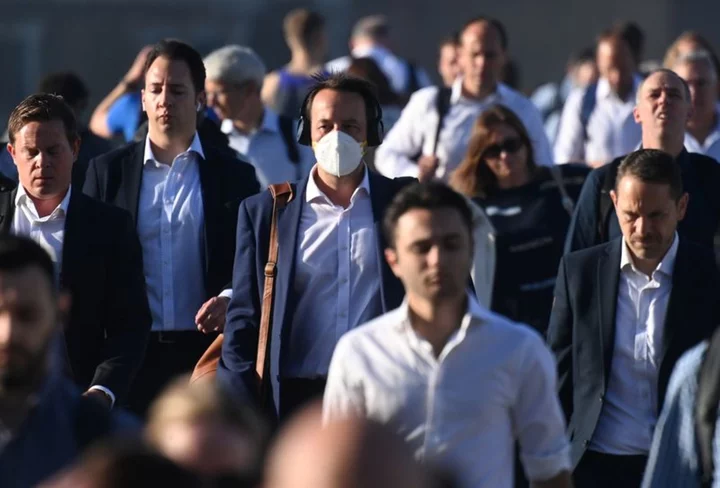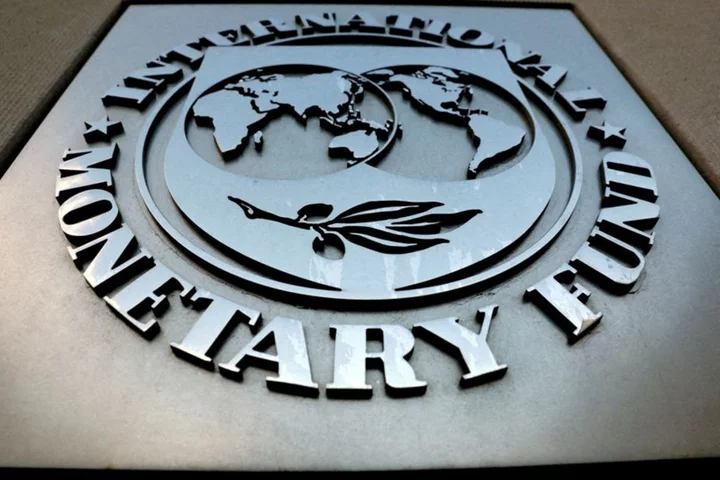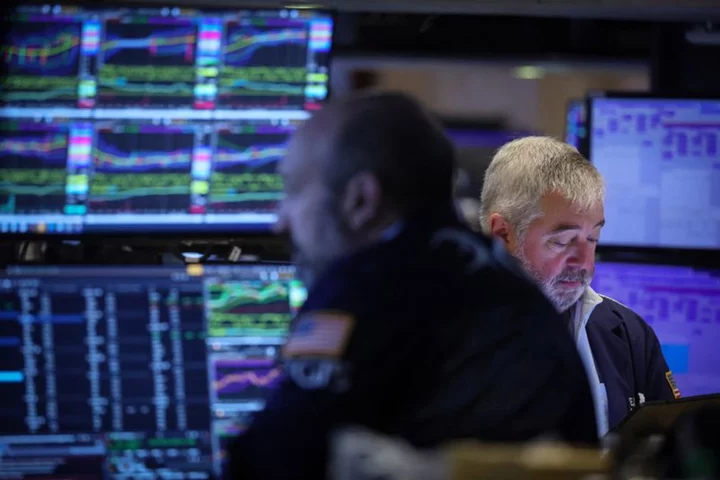LONDON (Reuters) -Britain's unemployment rate unexpectedly rose to 3.9% in the three months to March as more people sought to get back into the jobs market, potentially easing concerns at the Bank of England about inflation pressures.
Economists polled by Reuters had expected the rate to hold at 3.8%.
Sterling fell against the U.S. dollar and the euro as investors readjusted their views on the likelihood of the BoE pausing its run of interest rate increases when it next meets in June. Rate futures put the case of such a pause at about 30%.
The ONS said provisional data from Britain's tax office showed the first fall in total payrolled employees in more than two years in April, down by 136,000 from March.
Vacancies fell for the tenth time in a row in the three months to April, hitting their lowest since mid-2021.
However, pay growth - which is at the heart of the BoE's debate about whether to raise interest rates further - remained strong by historical standards.
Basic pay rose by 6.7% in the three months to March compared with the same period last year, picking up speed slightly from an increase of 6.6% in the three months to February.
The economists polled by Reuters had expected basic earnings to grow by a stronger 6.8%.
The increase was driven by an acceleration in wage growth for public sector workers.
Annual pay growth including bonuses held at 5.8%, as expected in the Reuters poll.
Darren Morgan, director of economic statistics at the Office for National Statistics, said flows of people back into work or looking for work were driven in particular by men.
However, the number of people not working due to long-term sickness rose to a new record, Morgan said.
(Reporting by William SchombergEditing by Sachin Ravikumar)









